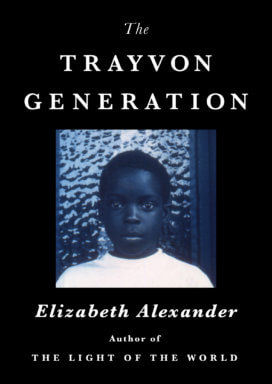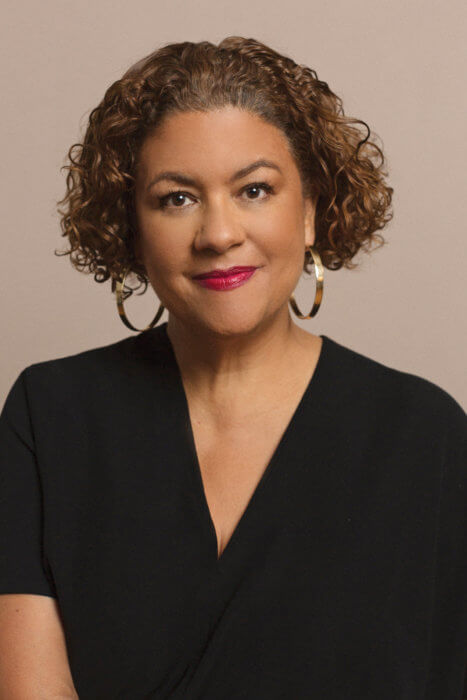Things to say to your children

“The Trayvon Generation” by Elizabeth Alexander
c.2022, Grand Central Publishing
$22.00
160 pages
Your children never miss a thing.
Nothing escapes their notice. They watch below and overhead, spotting objects you’ve passed by a dozen times but never truly saw. From birth and beyond, they’re like sponges, observant and watchful and, as in the new book, “The Trayvon Generation” by Elizabeth Alexander, you wish for them better things to see.
Though it’s been a four-hundred-year struggle, the number-one problem of this century, says Alexander, is still “the color line.” Generations have done “the race work,” but it remains an issue and she “both lament[s]” and is “enraged that… our young people still have to wrestle with” it.
She grew up “in troves of blackness,” but Alexander’s children were raised in a neighborhood where someone sent out a watch message about two Black boys riding around on bikes. As the mother of those boys, now men, she knows the worry, the dreams about worrying, and the fear of not being able to keep them safe.
As a Black mother, it’s impossible to “fully protect our children,” she believes.

Part of the problem is that we don’t always see white supremacy when it’s hidden right in front of us. Alexander points at artwork and paintings that hang in esteemed places, but that feature uncomfortable or even outrageous backgrounds that often go unnoticed, or that take decades to change, once they’re seen.
And we go back to what’s seen: Alexander calls her sons and Black people under twenty-five the “Trayvon Generation.” They’re the youth whose names are called when we talk about the police, and the young people whose names we don’t know. We see, and still wonder how a mother can keep her children from being “demonized,” or teach them “to access the sources of strength that transcend this American nightmare of racism and… violence.” How can she protect them, when they, themselves, are used to assuming “responsibility for the horror they could not prevent”?
“I wish,” she says, “… for our young people rest from the unending labor that is race work, and from the spectral anxiety that is part of what it is to be Black.”
How do you mark your pages when you read a book? Whatever you use, have a lot of them on hand because nearly every other paragraph of “The Trayvon Generation” contains a sentence or three that you’ll want to remember, to re-read, or turn over in your mind.
Author Elizabeth Alexander uses personal stories, Black literature, history, racial violence, and current events to paint pain inside the pages of this book. There’s outrage here, too, but it’s different than perhaps anything you’ve read: it shows itself, then it sits back and waits to see what a reader will do before getting another punch or gasp, another George Floyd, another Angola, another “shock of delayed comprehension.”
That’s what makes this book so must-readable, so thoughtful and compelling. It’s what makes it something you’ll want to share with your older teenager and your friends, for discussion. Find “The Trayvon Generation,” and you won’t miss a thing.





